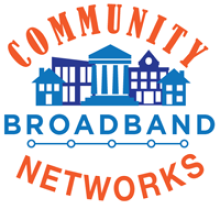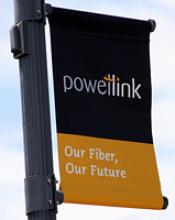Fast, affordable Internet access for all.
muni
Content tagged with "muni"
Lessig Promotes Publicly Owned Broadband at Personal Democracy Forum
I have long been a fan of Larry Lessig's work, so I was proud to see him use our work as the foundation for his presentation at the 2011 Personal Democracy Forum. He talks about the fundamental right of communities to build their own networks as well as Time Warner Cable's successful purchase of competition-limiting legislation in North Carolina.
New Video: Community Fiber Networks Better than Phone, Cable Networks
Louisiana Leg uses Porn Excuse to Target LUS Community Network
 The latter is essential reading for those new to understanding how any legislature works. And anyone building a network that will compete with big companies like AT&T, Cox, Time Warner Cable, et al. had better know how legislatures work because those companies live in the Leg.
The latter is essential reading for those new to understanding how any legislature works. And anyone building a network that will compete with big companies like AT&T, Cox, Time Warner Cable, et al. had better know how legislatures work because those companies live in the Leg.Response to Seattle RFP: More of the Same
Comcast is slated to pay $78,000 in one-time fees to cover part of the cable's installation, plus $4,057 in annual leasing fees, according to city documents.The City elected a Mayor who promised to improve broadband access, but it seems the City Council is standing in the way of actually doing anything that would bring residents and businesses a meaningful choice in providers. Photo, used under creative commons license, courtesy of Jeff Hathaway
Washington PUD Begins Fiber Network Stimulus Construction
The project will make highspeed Internet available to approximately 3,200 households, 360 business, and 24 community anchor institutions such as schools, libraries, and health care facilities. Residents and business owners will have the opportunity to subscribe to a variety of highspeed Internet services through local internet service providers.
Lafayette's LUS Fiber Creates Videos, YouTube Channel
Lafayette's publicly owned FTTH network has created a YouTube channel featuring a commercial aimed at residential subscribers (in 15, 30, and 60 second spots) as well as a longer video aimed at increasing economic development. Both are embedded below.
These are "no-brainer" marketing techniques that every community should have at a minimum to promote their services.
Greenville: The Texas Muni Cable Network
In 1999, Greenville, Texas' economic development leaders were unable to attract certain businesses and on the verge of losing existing companies due to a lack of high speed Internet. In response, Mayor Sue Ann Harting asked SBC for a commitment to deploy DSL. That request was denied. The city's cable franchise, Time Warner, also declined to commit to cable modem Internet deployment. Greenville found itself in a situation similar to one that many towns had faced years ago when railroads changed transportation. If the railroad was not routed through a town, that town just might die. What would happen to Greenville if the information superhighway did not come through the city?Incumbent cable and telephone companies, their lobbyists, and associated "think tanks" like to claim that communities are somehow "duped" into building publicly owned networks. The truth is that just about every community wants to avoid the hassle of building a network but incumbents refuse to invest sufficiently to keep the community competitive for economic development and a high quality of life. They build networks when backed into a corner, not because they want to. Fortunately, all that hassle almost always pays off with far more benefits than problems over the long term as communities transition from depending on some distant corporation to solving their own problems locally. In fact, the results are often like that of Greenville:
Greenville citizens were not willing to take that chance. They took destiny into their own hands by amending the city charter to allow their revenue-only supported, municipally-owned electric system to build a hybrid fiber coaxial system to make high speed Internet available to everyone.
Short History of Powellink Muni Fiber in Wyoming
Policy In-Depth: Debate over Muni Broadband Competing With Private Sector
On June 1, the Information Technology and Innovation Foundation held an oxford-style debate over the proposition: "Governments should neither subsidize nor operate broadband networks to compete with commercial ones."
Jim Baller and I spoke against the proposition while Rob Atkinson and Jeff Eisenach defended it during the 2 hour, 15 minute session. I was unable to be in DC and thus participated by the magic of modern telecommunications.
This is a long but valuable and unique discussion. We left talking points behind, actually responded to the points raised by the other side, and presented both sides of this debate in a reasonable manner. In short, this is exactly the kind of discussion we would elected officials to consider before legislating on the matter. But it very rarely happens -- nothing even remotely close to it occured in North Carolina when Time Warner Cable pushed its bill through the Legislature to enact a de facto ban on muni networks in the state.
You can watch it here.







